As one of the world’s most beloved small pets, the guinea pig is a cute, cuddly, and very playful companion to have in your home. However, one thing nobody prepares you for when you adopt this adorable little pet is their pooping regime.
It’s not difficult to fall head over heels in love with a cute little baby guinea pig. In fact, it’s actually easier than most would like to admit. But what happens when your new little buddy starts to poop?
Where does it happen? How often should your guinea pig poop, and — more importantly — when is it enough? If the eyes are the windows to the soul, then your guinea’s poop is the window to its health.
So let’s jump in and find the answers to why your guinea pig poops so much.
Guinea pig’s poop – a short intro
If you’ve ever owned a guinea pig, you know by now that these little furballs have a diet that’s high in fiber. They also almost always graze on Timothy hay and similar fiber-wealthy ingredients. For newbie guinea pig owners, remember that they even feed on their own poop.
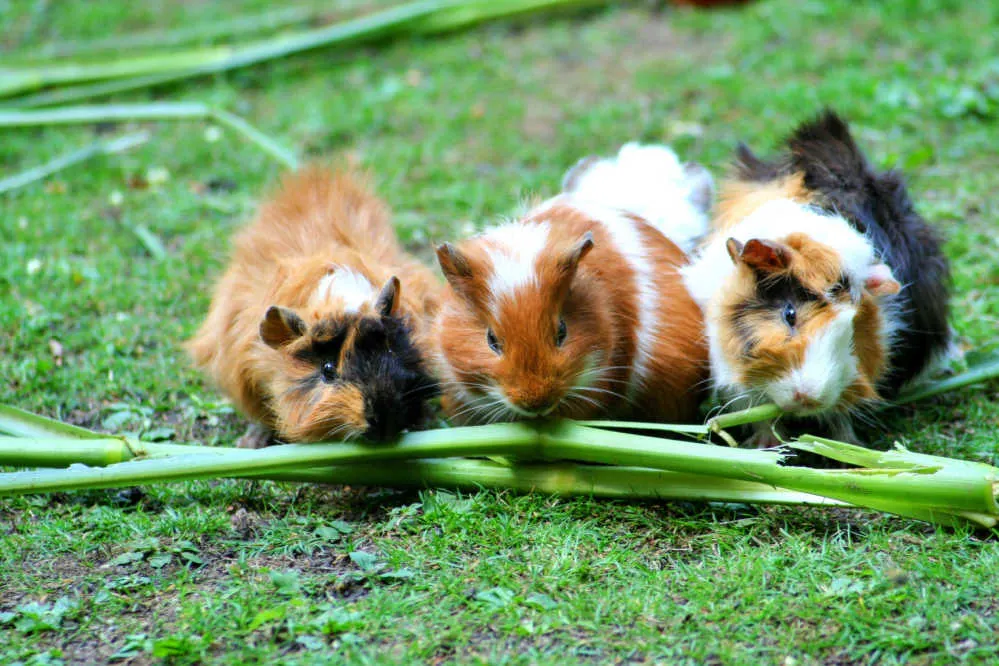
Yes, it might just be poop, but your guinea pig’s droppings say a lot about the overall health of your furry little friend. Seeing as they hide their illnesses pretty well, critical signs of any health issues can be found in their feces.
If you don’t pay attention, it might already be too late by the time actual disease symptoms appear. Signs of dehydration, dental problems, viral infection, and digestive problems can all be found upon close inspection of guinea poop.
And if you thought there was only one kind of poop involved with raising your guinea pig, you’re in for a surprise. Depending on the physical condition of your guinea, it can produce eight different types of poop. Each has its attributes and cause.
So, keeping this in mind, it’s always a good idea to be able to see your guinea’s poop when the need arises. To do so comes down to your guinea’s enclosure, as they tend to poop in specific places. Although you can technically never potty train a guinea pig, it is possible to regulate where they go about their business.
Now let’s dive into the nitty-gritty of guinea pig poop and find out why your guinea pig is pooping so much.
Tip: Find out everything you need to know about whether hamsters and guinea pigs are the same, right down to their digestive systems.
What your guinea pig’s poop really says
A healthy guinea pig should be pooping just as much as it is eating. If you see a notable change in your guinea’s pooping habits, there could be a few reasons behind this. But what is normal?
Generally, your guinea pig’s poop should measure approximately one to two cm. It should be plump and cylindrical and rounded at both ends. Regarding frequency, expect your guinea pig to poop about 100 times daily. Yes, 100 times a day.
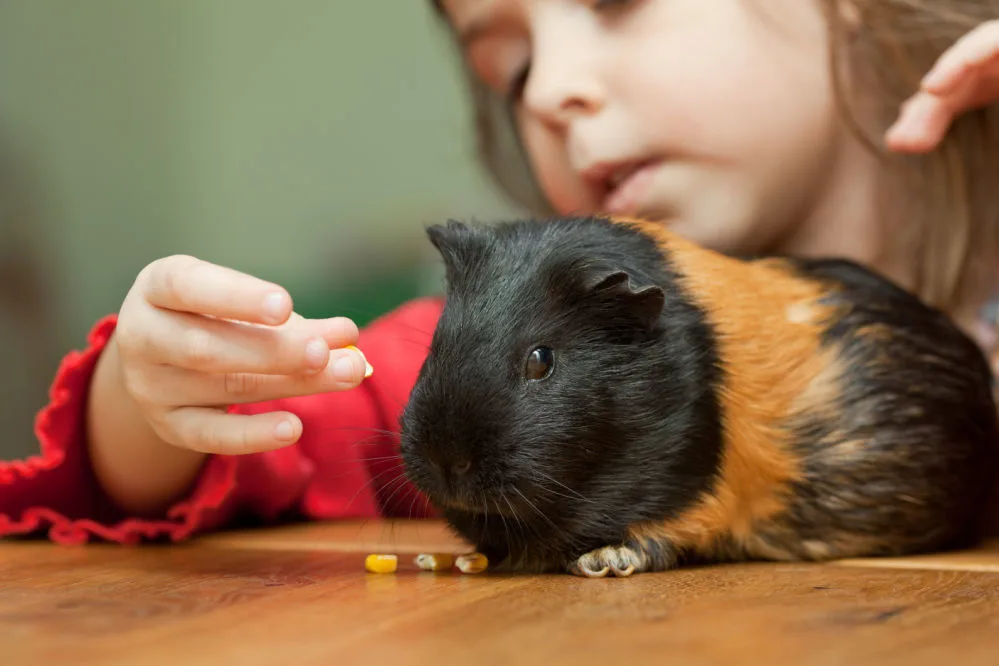
As for consistency, it should be smooth, solid, and well-formed. Colorwise, your guinea pig’s poop should generally be medium to dark brown, except for cecal pellets. Finally, you’ll be happy to know that guinea poop rarely smells and usually does not.
Tip: Concerned about your guinea pig’s diet? Find out if guinea pigs can eat apples or if they can eat strawberries.
Types of poop
Now that we’ve delved into normal guinea poop let’s look at the other types of poop you can experience from your guinea.
Small and dry poop
It could signify dehydration if your guinea pig produces small and dry poops. As guinea pigs should ideally drink about 10% of their body weight in water every day, when they don’t, it directly affects them and their poop.
Dehydration is a significant danger to your guinea as it might lead to other symptoms, such as fever and loss of appetite. Thus, you must ensure your guineas have enough clean water and can easily access it.
Dry, tear-shaped poop
If you notice that your guinea’s poop is tear-shaped, it could indicate a gut problem. This is usually the result of a lack of fiber in their diets, as they need high levels of nutrients to ensure their digestive systems function correctly.
If your guinea does not have access to enough hay, it may cause severe dental problems which will impede their ability to eat. Thus it is always a good idea to have an abundance of Timothy hay or Orchard hay available.
Clumped poop
Clumped, big, and blocked poop are all indicators of a gut problem or potential aging rectal muscles. This often happens when guineas are fed grain in the form of bread, chips, rice, seeds, and the like.
This often results in your guinea pig being constipated and can be noticed if your little friend is having problems going about their business.
Green poop
Usually, green poop is called cecal pellets, which your guinea pig might re-ingest for nutritional health. Before you ring the alarm bells, note that guinea pigs are coprophagic, which means they re-ingest their own poop.
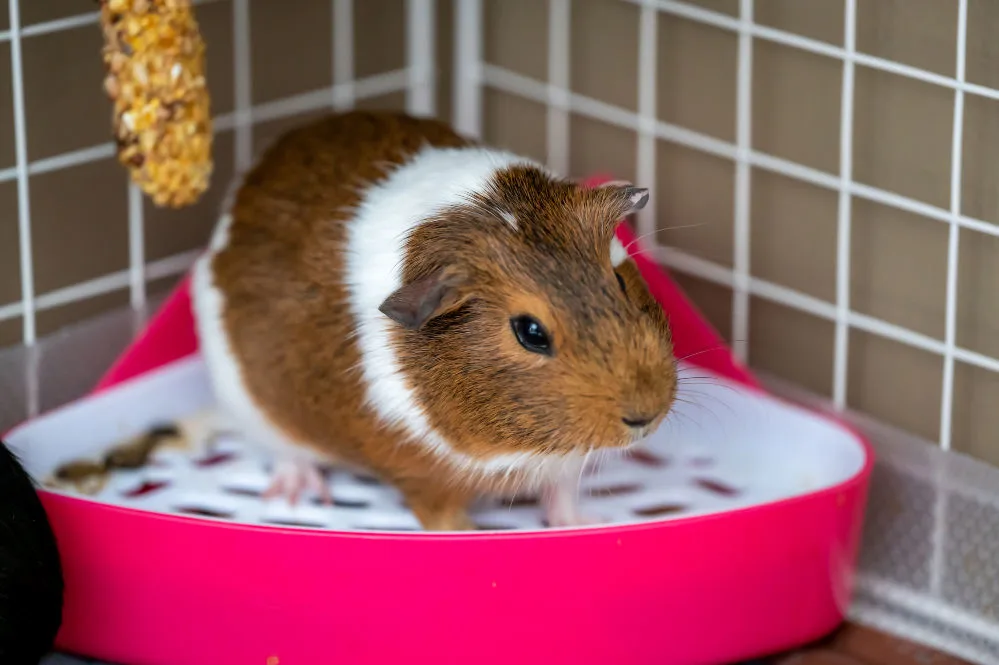
This is done as part of their own natural digestive process. Essentially your piggy normally produces this type of poop, and it should be ingested as it contains double the amount of protein and half the fiber of normal poop. Guineas do this to maintain a healthy level of flora in their bodies.
Smelly, soft, and mushy poop
Seeing your piggy produce soft, smelly, and mushy poop could signify a nutritional or diet problem. In some cases, it could also be a sign of diarrhea. If your guinea pig suffers from watery diarrhea, it could cause other complications.
These include lethargy, dehydration, loss of appetite, and, in worst-case scenarios, low body temperatures. Once again, if your guinea has access to an abundance of hay, that should solve this problem.
Bloody poop
Red and bloody poop is a severe indication of mechanical obstruction, inflammation, or a tear in the anus or intestinal system. This is dangerous and you should immediately get your guinea pig to a vet.
What affects your guinea pig’s poop
An important aspect to note is that a few factors play a role in your guinea’s regular poop schedule. These include the guinea pig’s diet, exercise, and age. First off, your guinea’s diet is the main culprit as it impacts how much it poops and directly impacts its health.
While most believe that guinea pigs only eat lettuce and carrots, they also consume numerous other plants. Yes, they mostly eat hay and veggies, and this naturally leads to a lot of waste produced by their bodies.
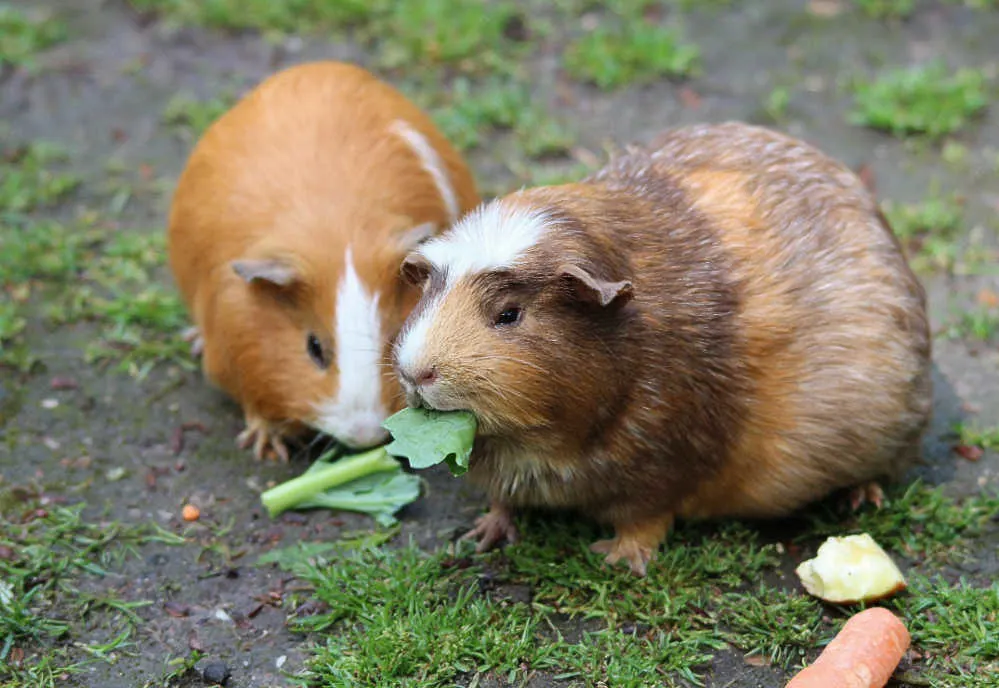
It’s within these veggies and hay that they find the needed amount of fiber for a healthy diet, and the more fiber is present, the more poop is made. Beyond the quality of their food, the amount and quality of guinea pig feces also depends on their age.
Next is the level of physical activity your guinea pig indulges in daily. The more physical exercise, the more poop. The same pattern that works for humans works for guinea pigs. Their bodies produce less waste if they have less room to roam around and play.
Finally, the older your guinea gets, the less it will poop. The ageing process is again similar to humans; the more senior your little friend gets, the slower its digestive processes become. This means that with age, they will naturally poop less.
Tip: Trying to make life as comfortable as possible for your little friend? Find out how to set up a guinea pig cage with fleece.
How often should your guinea pig poop?
Ideally, your guinea pig should poop at least 100 times a day. If this number dips to around 50 fecal pellets per day, it could indicate a health condition. You must remember guinea pigs should have food passing through their intestines almost all the time.
If your guinea pig stops eating or eats less than it should, it could result in what is known as GI stasis. This means that the intestines slow down and stop working altogether, which can be very detrimental to your furball’s health. GI stasis is very dangerous, and once it sets in, your guinea can die within a few hours. So it’s better to have your guinea pig pooping too much rather than too little.
What it means when your little furry friend is pooping a lot comes down to a few things. Perhaps your piggie is pooping more than 100 times a day, and you’re feeling a bit concerned that it’s too much. Firstly, it is not a cause for alarm. A lot of poop means that your guinea is ingesting and properly digesting the right amount of food and pulling the correct amount of essential nutrients from its food.
It means that you are taking the correct care of your pig by feeding it a balanced, fiber-rich diet. It also means that they are sufficiently hydrated and your guinea pig’s digestive system is in good shape.
How you can impact your guinea pig’s poop
There are a few ways in which what you do as the parent of a guinea pig can impact their pooping regime. This can be done for several reasons, so let’s have a look at the most common.
How to prevent abnormal poop
If you haven’t realized it by now, if a guinea pig has a healthy digestive tract, their poop and pooping schedule will be quite active. How can you directly impact that system? Well, the easiest way is by ensuring that your guinea pig always has enough hay.
Considering that it’s their staple diet, having it available at all times is of utmost importance. Also, ensuring that the hay you provide is of the highest quality is an absolute must.
How often should you clean your guinea pig’s poop?
Another critical question is how long should the intervals be between cleaning up your guinea’s poops. Even though a guinea pig is a small pet, it’s still a big responsibility.
It’s therefore super important that your guinea pig has a balanced diet and high levels of hygiene. Cleaning your guinea pig’s cage should involve a daily spot cleaning and can include up to two spot cleanings per day if they poop more than average.
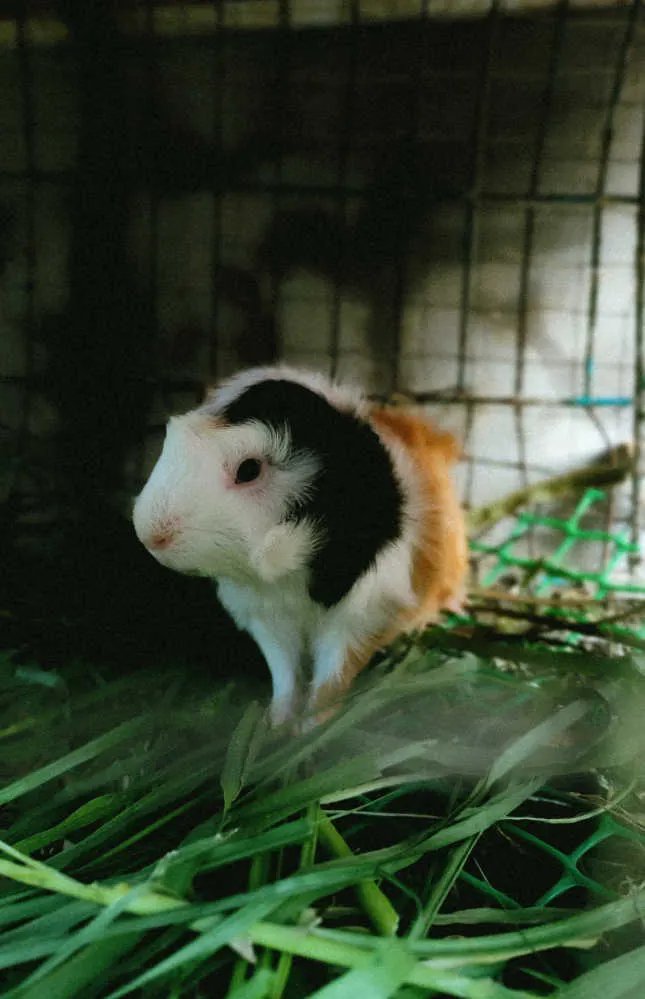
This involves refilling its water bowl or bottles, removing old and dirty hay, and adding in fresh bedding. This is also when you will remove any growing mounds of poop, mainly found in corners and darker areas of the enclosure. Beyond this, a thorough cleaning should be done once a week.
Final thoughts: why does your guinea pig poop so much?
Well, there you go — everything you need to know about why your guinea pig is pooping so much. It all comes down to diet and digestive health, and if you stick to this guide, your guinea pig and its stomach will thank you.
Read next: Now that you know why your guinea pig is pooping so much, find out why your guinea pig is coughing.
Steph Dyson is a travel journalist by trade but a lover of all small pets. She’s been a pet mum to everything from gerbils to guinea pigs, rabbits to hamsters, and fish to dogs of all shapes and sizes. She wants to share her years of experience with small pets and make Small Pet Guides the go-to website for pet owners seeking information and care advice.

